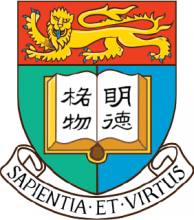About Babeş-Bolyai University
Babeș-Bolyai University is Romania’s largest higher education institution and a consistently strong performer in national and international rankings. Specialising in languages and law but offering courses across a large number of disciplines, UBB is in the city of Cluj-Napoca, often known as Cluj.
A tranquil city in North West Romania, Cluj is one of the safest cities in the country. Around a fifth of Cluj’s residents are Hungarian, and Hungarian is one of the university’s languages, along with Romanian, English, French and German. At times, Hungarian has been the only language that the institution’s lecturers taught in.
Originally a Roman settlement, the first educational establishment to have roots in the city of Cluj was a Jesuit college founded in 1579. The University of Cluj was founded in 1872, with an initial 258 students divided into four faculties: Medicine, Law and State, Philosophy, Liberal Arts and History, and Mathematics and Natural Sciences. In 1919, King Ferdinand I of Romania ruled that it was to become a Romanian institution, changing the main official language to Romanian. Another Hungarian-language institution was later formed, however, in 1945: Bolyai University. In 1959, the two universities were unified, giving Babeș-Bolyai its current name, and a total of six faculties. New additions included the Faculty of Philology.
Full of Gothic and Baroque architecture, museums, cafés and clubs, Cluj is home to more students than any other city in the country. The country’s film capital, thousands of people flock to the city each May for the Transylvania Film Festival, including a large number of foreign visitors.
Explore these featured universities
Explore rankings data for Babeş-Bolyai University
Compare universities on their key stats
Key statistics
- 21%Proportion of ISR Publications(1)
- 64 : 36Student Ratio of Females to Males(1)
- 4%Percentage of International Students(1)
- 20.4No. of students per staff(1)
- 42,557Number of FTE Students(1)
Subjects taught at Babeş-Bolyai University
Engineering & technology
- Mechanical & Aerospace Engineering
- Chemical Engineering
- Electrical & Electronic Engineering
- General Engineering
Business & economics
- Economics & Econometrics
- Business & Management
- Accounting & Finance
Clinical, pre-clinical & health
- Other Health
Social sciences
- Communication & Media Studies
- Geography
- Sociology
- Politics & International Studies (incl Development Studies)
Arts & humanities
- Art, Performing Arts & Design
- Languages, Literature & Linguistics
- History, Philosophy & Theology
- Archaeology
Physical sciences
- Mathematics & Statistics
- Chemistry
- Physics & Astronomy
- Geology, Environmental, Earth & Marine Sciences
Life sciences
- Sport Science
- Biological Sciences
Law
- Law
Education
- Education
Psychology
- Psychology
Computer science
- Computer Science






